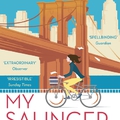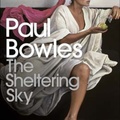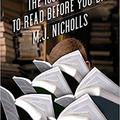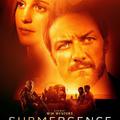Jeanette Winterson: The Passion
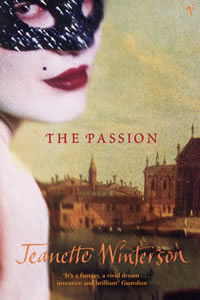
I guess I already mentioned this quite a few times, but I love to re-read books. My desire to re-read something usually comes when one of my favorites is mentioned in passing, or when I suddenly remember a couple of lines or an episode from a novel and I feel that I must read it again, immediately. My desire to re-read The Passion arose when I was somehow reminded of these two recurring, beautifully ambiguous sentences from the novel: „I’m telling you stories. Trust me.”
So, The Passion. One of the protagonists is a 16-year-old French country lad, Henri, who dreams about flames, passion, unsettling and upsetting emotions, and isn’t content with the mild, meek and lukewarm behavior usually characteristic of his countrymen. To make his dream come true, Henry joins the army of Napoleon – a bright, inspired and inspiring, obsessed emperor, and Napoleon becomes Henri’s passion: the boy adores and idolizes him. Henri soon becomes the emperor’s dedicated chicken-server (Napoleon passionately loves chicken and he needs a whole bunch of people who can provide him with his favorite dish, 24/7), he is by his idol’s side in every campaign, and he has the chance to follow every step of his awe-inspiring hero.
The other main character is Villanelle, a Venetian girl who works in a casino, engages in affairs of all kinds, and enjoys life to the fullest – however, her heart isn’t once touched in the course of all her romantic and erotic adventures (which happens to be just fine for her). No matter how much and how often she cheats, flirts, steals, no matter how many hearts she conquers, no matter how many people she makes love to, her heart remains cold and devoid of real passion – until she meets an elegant lady whose single touch is enough for Villanelle to lose all her coolness and to devote her life to the passion the lady awoke in her.
At first we read about their life and their quests for passion in two separate storylines, but after New Year’s Eve 1805 there’s a big jump ahead in time, and the story continues 8 years later. Napoleon is on his way to conquer Moscow and he’s mercilessly chasing his fatigued, tattered troops through the unbearable Russian winter. Henri is still Napoleon’s official chicken-server, in the past years, however, he re-evaluated his feeling for his idol, and his original passionate adoration slowly turned to hatred as he realized that his hero isn’t worthy of his passion. At this time Villanelle is also a member of Napoleon’s troops as a prostitute serving the high-ranking officers of the army, and her heart is still beating for (and in the apartment of) the elegant lady – since Villanelle literally left her heart at her place. Henri and Villanelle (and a third person) finally run away from the camp, and while they’re on their way home, an unusual relationship blooms between them – not a „simple” love affair, not at all – it’s something way more complicated, intricate, fearsome and powerful, but I won’t go into this.
There’s no need to, either, because the gist of the novel isn’t the story, but passion itself – the passion the characters chase and live through, or the passion they’d like to run from. Passion – which is joy and misery at once. An emotion which turns everything inside out, rewrites every previous narrative, makes everything different, more real – or simply: real. Something which is indefinable: all you can say about it by way of definition is that it lies between fear and sex. („Somewhere between fear and sex, passion is.” – is another recurring line in the novel.)
Passion isn’t only present in the novel in its „regular” sense (i.e. passionate love) – Winterson writes about several different kinds of passion as well, but every form of passion is basically the same, since a passion (no matter what its object is: another person, an idol [like Napoleon for Henri], an idea, or a game) always has something to do with love, it’s based on love and it feeds on love – so in this sense every kind of passion is a love affair of sorts, and its essence is that the person in passion doesn’t think for a moment before sacrificing their life, heart, time or worldly possessions (or whatever may be their most valued treasure) for its sake. (Of course the person in passion has no real say in the matter, and it’s not as if there was time and chance to hesitate, not even for a moment – it’s enough to think of Villanelle, who proudly thinks that she can take care of herself and her emotions, but a single touch of the aristocratic lady is enough for her to lose her most valuable possession, her heart.)
And of course the passion Winterson talks about is always a game, too. Not in the sense that it’s not serious, or that it means that a person plays with or against the other or manipulates the other – actually it’s the other way around. The person in passion plays with his or her own self, it’s his or her own self he or she stakes. As another recurring line of the novel goes: „You play, you win, you play, you lose. You play. It’s the playing that’s irresistible.” And another thought, formulated by Villanelle towards the end of the novel when she is thinking whether she would take care of her heart better now that she managed to get it back from her elegant lover: „Will I gamble it again? Yes.” Does this count as irresponsible behavior? I don’t know and don’t want to judge, but from the novel it seems that this is not a question of decision – it simply happens.
By the way: this is a beautiful novel. It’s enchanting, uplifting, magical and heartbreaking. And with all its mantra-like recurring lines, its stories within the story, its labyrinthine yet (emotionally) logical trains of thought the novel makes me feel as if I was in a dream. I’ve loved this novel for several years now, and I think I already knew what it was about the last time I read it (some four years ago). But now I’m also beginning to feel what it’s about, and this makes me love it even more.
So, The Passion. One of the protagonists is a 16-year-old French country lad, Henri, who dreams about flames, passion, unsettling and upsetting emotions, and isn’t content with the mild, meek and lukewarm behavior usually characteristic of his countrymen. To make his dream come true, Henry joins the army of Napoleon – a bright, inspired and inspiring, obsessed emperor, and Napoleon becomes Henri’s passion: the boy adores and idolizes him. Henri soon becomes the emperor’s dedicated chicken-server (Napoleon passionately loves chicken and he needs a whole bunch of people who can provide him with his favorite dish, 24/7), he is by his idol’s side in every campaign, and he has the chance to follow every step of his awe-inspiring hero.
The other main character is Villanelle, a Venetian girl who works in a casino, engages in affairs of all kinds, and enjoys life to the fullest – however, her heart isn’t once touched in the course of all her romantic and erotic adventures (which happens to be just fine for her). No matter how much and how often she cheats, flirts, steals, no matter how many hearts she conquers, no matter how many people she makes love to, her heart remains cold and devoid of real passion – until she meets an elegant lady whose single touch is enough for Villanelle to lose all her coolness and to devote her life to the passion the lady awoke in her.
At first we read about their life and their quests for passion in two separate storylines, but after New Year’s Eve 1805 there’s a big jump ahead in time, and the story continues 8 years later. Napoleon is on his way to conquer Moscow and he’s mercilessly chasing his fatigued, tattered troops through the unbearable Russian winter. Henri is still Napoleon’s official chicken-server, in the past years, however, he re-evaluated his feeling for his idol, and his original passionate adoration slowly turned to hatred as he realized that his hero isn’t worthy of his passion. At this time Villanelle is also a member of Napoleon’s troops as a prostitute serving the high-ranking officers of the army, and her heart is still beating for (and in the apartment of) the elegant lady – since Villanelle literally left her heart at her place. Henri and Villanelle (and a third person) finally run away from the camp, and while they’re on their way home, an unusual relationship blooms between them – not a „simple” love affair, not at all – it’s something way more complicated, intricate, fearsome and powerful, but I won’t go into this.
There’s no need to, either, because the gist of the novel isn’t the story, but passion itself – the passion the characters chase and live through, or the passion they’d like to run from. Passion – which is joy and misery at once. An emotion which turns everything inside out, rewrites every previous narrative, makes everything different, more real – or simply: real. Something which is indefinable: all you can say about it by way of definition is that it lies between fear and sex. („Somewhere between fear and sex, passion is.” – is another recurring line in the novel.)
Passion isn’t only present in the novel in its „regular” sense (i.e. passionate love) – Winterson writes about several different kinds of passion as well, but every form of passion is basically the same, since a passion (no matter what its object is: another person, an idol [like Napoleon for Henri], an idea, or a game) always has something to do with love, it’s based on love and it feeds on love – so in this sense every kind of passion is a love affair of sorts, and its essence is that the person in passion doesn’t think for a moment before sacrificing their life, heart, time or worldly possessions (or whatever may be their most valued treasure) for its sake. (Of course the person in passion has no real say in the matter, and it’s not as if there was time and chance to hesitate, not even for a moment – it’s enough to think of Villanelle, who proudly thinks that she can take care of herself and her emotions, but a single touch of the aristocratic lady is enough for her to lose her most valuable possession, her heart.)
And of course the passion Winterson talks about is always a game, too. Not in the sense that it’s not serious, or that it means that a person plays with or against the other or manipulates the other – actually it’s the other way around. The person in passion plays with his or her own self, it’s his or her own self he or she stakes. As another recurring line of the novel goes: „You play, you win, you play, you lose. You play. It’s the playing that’s irresistible.” And another thought, formulated by Villanelle towards the end of the novel when she is thinking whether she would take care of her heart better now that she managed to get it back from her elegant lover: „Will I gamble it again? Yes.” Does this count as irresponsible behavior? I don’t know and don’t want to judge, but from the novel it seems that this is not a question of decision – it simply happens.
By the way: this is a beautiful novel. It’s enchanting, uplifting, magical and heartbreaking. And with all its mantra-like recurring lines, its stories within the story, its labyrinthine yet (emotionally) logical trains of thought the novel makes me feel as if I was in a dream. I’ve loved this novel for several years now, and I think I already knew what it was about the last time I read it (some four years ago). But now I’m also beginning to feel what it’s about, and this makes me love it even more.

